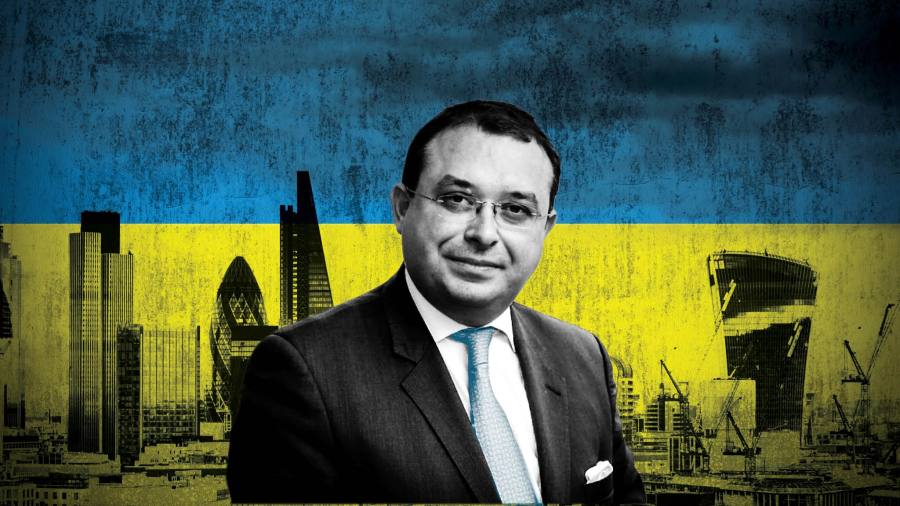
The global trade association for the PR industry has been rocked by a poisonous power battle over governance, with allies of its longstanding director-general saying he is being punished for his vocal support for Ukraine.
The Public Relations and Communications Association (PRCA), has been shaken by complaints that there is insufficient internal oversight over how Francis Ingham, who has been director-general for 15 years, runs the body and uses rhetoric on the Ukraine war to deflect criticism.
“I once upset al-Qaeda and that was less scary than upsetting Ingham’s PRCA supporters,” quipped Andy Barr, founder of PR firm 10 Yetis, which is not a member of the organisation.
The London-based PRCA represents more than 35,000 communications professionals around the world and many of the world’s best known agencies are members that subscribe to its code of conduct.
The PR industry is one of Britain’s success stories. London’s firms are among the top players in the global multibillion-dollar industry that spans advising the governments of Middle Eastern petrostates to Silicon Valley tech companies.
Agencies often find themselves on the front lines of geopolitics and the association shows that they are committed to maintaining standards that allow them to operate around the world. For example, under Ingham the PRCA expelled the communications firm Bell Pottinger for running a racially divisive advertising campaign in support of allies of South African president Jacob Zuma. Many others operated freely in Russia until the invasion of Ukraine in February.
The war within the organisation has divided senior PR figures across the communications industry, with many afraid that the tensions will have an impact on their reputations and business. Ketchum and one other agency have suspended their memberships over the dispute, while Don’t Cry Wolf has terminated its relationship with the body.
Ingham’s critics say that longstanding governance issues have been exposed by recent complaints about the director-general’s conduct around the Ukraine issue. “Ukraine has brought to light that the body has not been run very professionally by Francis,” said Barr.
Some of the complaints about Ingham are based around comments he made this year in support of Ukraine, including a deleted tweet in which he told someone on Twitter to “fuck off back to Moscow”.
“Business associates got slammed on social media by Russian bots and received death threats” in the wake of his comments, said one person familiar with the situation. “People asked Francis to stop and he kept ignoring them.”
Another executive said that Ingham’s “weird chest beating” rhetoric on Russia had put PR professionals in danger of retribution but their complaints over the issue went unaddressed by the PRCA.
“I filed an official on-the-record complaint [about Ingham] and it transpired that it wasn’t communicated,” John Brown, chief executive of Don’t Cry Wolf, said. “Having spent time waiting . . . I decided it was time to leave.” The PRCA declined to comment on the case.
In September the Russian Ministry of Foreign Affairs announced that it had placed 30 individuals from PR firms and the “defence lobby”, including Ingham and another PR professional, on its black list, banning them from visiting Russia and opening them up to online trolling from pro-Kremlin netizens.
Allies of Ingham claim the firms that have suspended their membership of the PRCA object to the organisation’s strong stance on the Ukraine war because they fear it will jeopardise future business with Russia. Ketchum, one of the firms that suspended its membership, advised the Russian government between 2006 and 2015; it declined to comment on the claim.
“If it appears that the PRCA has forced out its director-general for taking a strong stance on Russia, we will be the laughing stock of the western world. There’s no way I would want anything to do with the PRCA,” said one PR leader whose company is a member of the body and who asked not to be identified.
Ingham believes he may have to resign over the complaints, the Financial Times has confirmed, and he intends to pursue legal action against the board of the PRCA if he is forced out of his role as director-general.
But his opponents accuse him and his allies of using Russia to deflect legitimate concerns about alleged professional misconduct.
The PRCA confirmed that a board investigation into the complaints is currently under way. The new chair Sarah Scholefield, chief executive of PR company Grayling, has also launched a governance review led by the current chair of the board of the Chartered Institute of Legal Executives, Professor Chris Bones.
“Francis is not everyone’s cup of tea,” said the unnamed PR executive. “But he’s driven the organisation, through his enormous hard work and personality, to new heights.”
Another chief executive of a PR agency, which is a member of the PRCA but has little direct involvement with the body, said: “Trade associations notoriously can be quite badly run. We PR firms are terrible at applying the same governance standards to ourselves as to our clients.”
Ingham and Scholefield declined to comment.